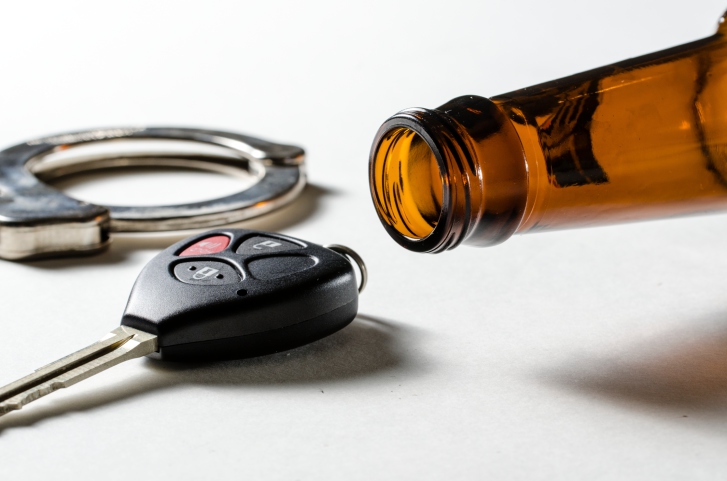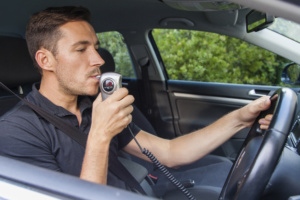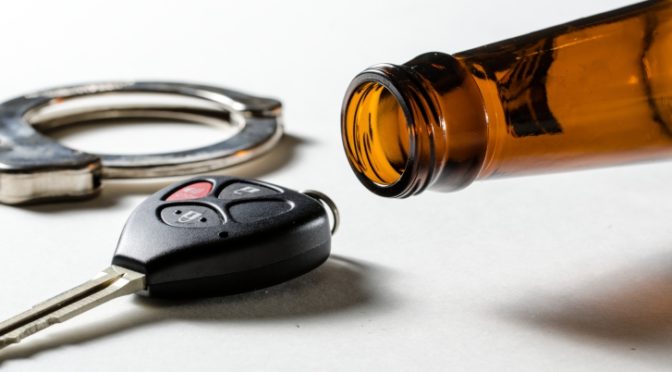A driving under the influence (DUI) of drugs or alcohol charge in Washington state usually results in harsh penalties, such as loss of license, jail time, ignition interlock requirements or fines. Knowing all the penalties associated with a DUI charge in Seattle can help you make the right choices to best help your case.

Fully understanding the penalties of a DUI is extremely important; hiring a Seattle DUI attorney should be highly considered also, as it may result in reduced or dropped charges or penalties. DUI attorneys are also able to help make the court process much simpler and less stressful for you.
Penalties
The penalties for a DUI in Seattle vary by the exact charge; whether this is a first or second offense, breath test results, etc. Keep reading as we break down the penalties of a DUI offense:
Mandatory Court Appearances
When arrested for a DUI in Seattle, a mandatory first appearance or arraignment follows. During this mandatory court appearance, the court will consider whether to impose conditions which may include posting of bail, electronic home monitoring pending trial, SCRAM alcohol monitoring devices, or whether to require the installation an ignition interlock device.
During this court appearance, the judge will also ask the accused to enter a “guilty” or “not guilty” plea to the DUI charge. The first court hearing is very important and can dramatically affect one’s liberty even before any determination has been made on the issue of guilt or innocence.
Having an experienced Seattle DUI defense attorney at each hearing to represent the accused is very wise and can make all the difference in the conditions and penalties imposed by the court.
License Suspension
If you test above the Blood Alcohol Content (BAC) legal limit of .08 on a breath test or refuse to take a breath and are arrested for a DUI, the Department of Licensing (DOL) will suspend your license. Even if you are proven not guilty after going to court, the DOL still takes what they call “administrative action” and will suspend or revoke your license.
The length of suspension is dependent on your breath test results. For Blood BAC test results .08 or higher, the DOL will suspend your license for at least 90 days. If you refused the breath test when arrested, the DOL will revoke your license for at least a year.
Once the suspension or revocation period is over, you may also be required to prove financial responsibility for three years by getting high-risk SR-22 insurance. Again, the DOL can make these requirements even if you were not convicted of a DUI charge after the arrest.
For anyone who had “administrative action” taken against them from the DOL within seven years of their current arrest, the suspension or revocation period may be longer.
Fighting Suspension or Revocation from the DOL
There is an option to fight a DOL issued suspension or revocation. In order to do this, the DOL “Driver’s Hearing Request” form must be filled out. The arresting officer should have given this form to you if you took a breath test and the result was .08 or higher, or if the breath test was refused. If a blood test was taken, the DOL generally mails this form to you.
There are a few requirements necessary in order to fight a DUI license suspension or revocation. You can only fight this by mailing the form to the DOL within 20 days of the date of notice along with a check for $375.00 (waivable if indigent).
When fighting a suspension or revocation, the DOL will suspend or revoke your license if you miss the deadline or take no action. This is true even if you have valid legal defense and/or you’re found innocent of the DUI charge.
Under 2009 law, an individual does have the option to apply for an ignition interlock device (IID) license if their privilege to drive is suspended. Having an experienced Seattle DUI defense attorney who is knowledgeable about DOL procedures and law can be a huge help and may give you a fighting chance at saving your license.
Increased License Suspensions After DUI Conviction
In addition to the administrative suspension imposed by the DOL, a DUI conviction in Seattle carries a separate, additional license suspension. For a first time conviction, the minimum additional license suspension is 90 days if the BAC reading is under .15. If the BAC is over .15, the license is revoked for a minimum of one year. If the breath test was refused on the first offense, there is a minimum two-year suspension. Subsequent convictions produce dramatically longer suspensions.

Mandatory Jail Time and Permanent Record Report
This penalty varies depending on the circumstances of the arrest. For first-time offenders, the judge has the power to impose a maximum sentence of up to one year in jail and a $5,000 fine. A minimum sentence applies to most Seattle DUI cases and even when the accused as no criminal history, the judge is required by law to impose the minimum sentence. The judge, however, is free to impose a harsher sentence when the circumstances warrant it.
The minimum sentence required by Washington state law for first-time offenders without a criminal history and a BAC reading under .15 is one day in jail, a fine, probation, and an additional license suspension imposed by the DOL.
For cases that involve BAC results of .15 or higher, or the test was refused, the minimum sentence required by law is two days in jail, an increased fine, and a longer license suspension. Keep in mind that if passengers were in the car, the judge may increase the sentence. If the passengers were under 16 years old, there will be an increase in the IID requirement, fine, and possibly jail sentence.
In all cases, the court is required to keep a permanent record of the conviction.
Electronic Home Detention
For some offenders, home detention may be an option. The law requires 15-plus days of home detention in exchange for a one-day jail sentence. For two-day jail sentences, the requirement is 30-plus days of home detention.
The penalties are much higher for repeat offenders. If there was a prior conviction for DUI within seven years of the arrest and the BAC reading was under .15, the minimum sentence is 30 days in jail followed by 60 days of electronic home detention. If the BAC reading was .15 or higher or refused, the minimum sentence is 45 days in jail followed by 90 days electronic home detention.
Electronic home detention is essentially “electronic jail” served in your home. Wearing an electronic ankle bracelet is required at all times while in detention. This ankle bracelet will record and report your location at all times. It also monitors movement, and if the wearer goes beyond the pre-established distance, a computer calls the central monitoring computer to report the violation.
For those who opt for a home detention sentence rather than jail time, there is a large electronic home detention fee that the offender is required to pay; it is approximately $20 to $50 per day depending on the jurisdiction.
Ignition Interlock Device License
As mentioned above, an IID is a breath testing machine that is connected to the wiring of a car and prevents the car from starting if the driver has alcohol on their breath. An IID may be required for at least one year after the license has been reinstated and is also required if an offender wishes to driver during the administrative license suspension.
The use of an ignition interlock device may be required by the by the DOL for up to 10 years. First-time offenses require one year IID use, second offenses require the use of an IID for five years, and a third offense or more will require a 10-year IID. Anyone who cannot go without a license until the suspension has been lifted can apply for an “ignition interlock license.” With this license, one is permitted to drive as long as the vehicle is equipped with an ignition interlock device.
Probation Violations Come with Stiff Penalties
Although not widely known, according to Washington state DUI laws, probation violations are dealt with very harshly. Five-year probation conditions include: not driving a motor vehicle without a valid license or insurance, not driving a vehicle with an alcohol concentration of .08 or more within two hours of driving, and not refusing to submit to a test of breath or blood upon lawful request.
If any of the DUI probation violations do occur, the law states, “the court shall order the convicted person to be confined for thirty days, which shall not be suspended or deferred.”

Hiring a Seattle DUI attorney should be highly considered after an arrest. Having an experienced DUI defense attorney at your side will ensure your rights are protected throughout the process and may result in charges or penalties being reduced or dropped. DUI attorneys are also able to help make the court process much simpler and less stressful for you.
Leyba Defense is an experienced DUI defense attorney in Seattle, Washington, with offices in Seattle and Bothell. When meeting with us, our main goal is to answer your questions and put your mind at ease. Matt Leyba is available 24/7 for a free consultation.






